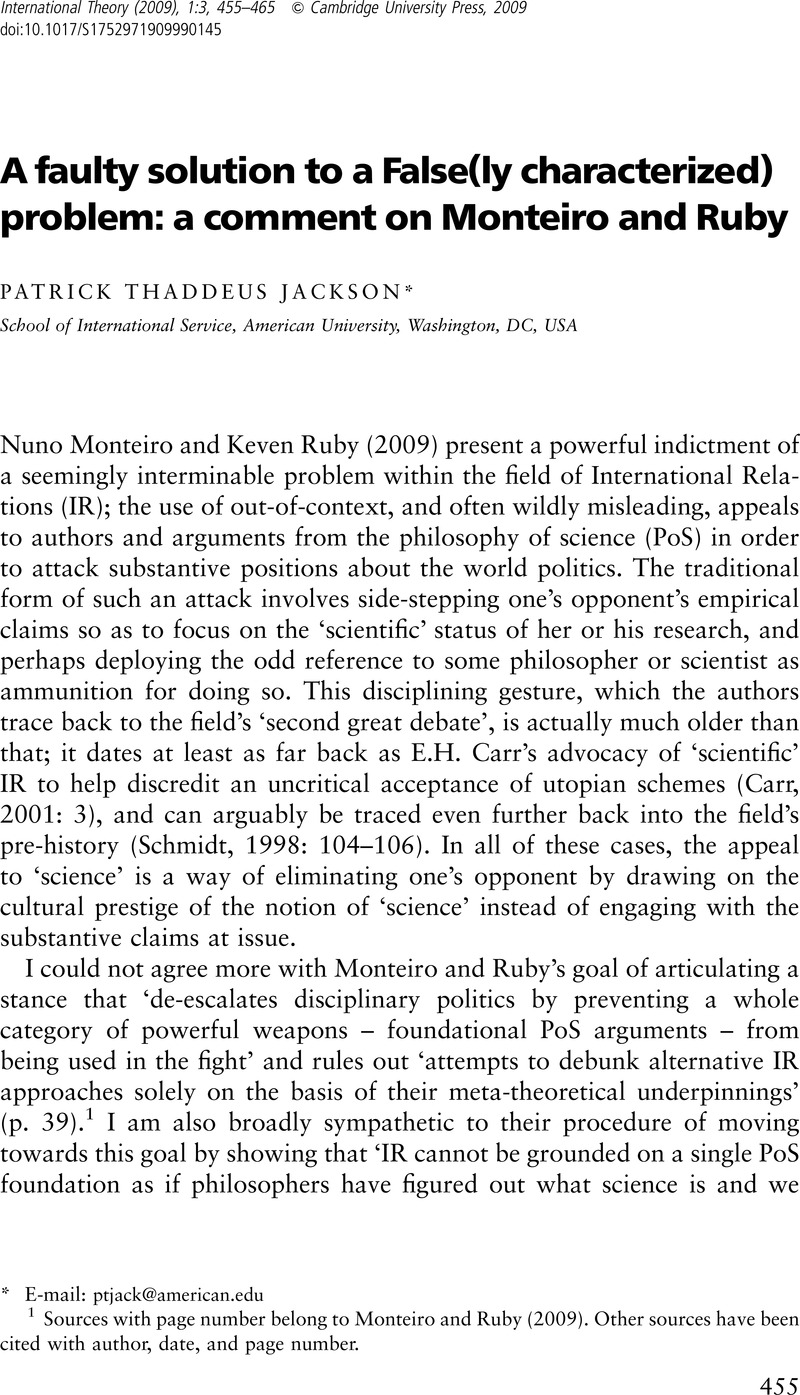Crossref Citations
This article has been cited by the following publications. This list is generated based on data provided by Crossref.
Monteiro, Nuno P.
and
Ruby, Keven G.
2009.
The promise of foundational prudence: a response to our critics.
International Theory,
Vol. 1,
Issue. 3,
p.
499.
Käpylä, Juha
and
Mikkola, Harri
2011.
‘Getting things right?’: a reconsideration of critical realism as a metatheory for IR.
Journal of International Relations and Development,
Vol. 14,
Issue. 4,
p.
401.
Cudworth, Erika
and
Hobden, Stephen
2012.
The Foundations of Complexity, the Complexity of Foundations.
Philosophy of the Social Sciences,
Vol. 42,
Issue. 2,
p.
163.
MacKay, Joseph
and
Levin, Jamie
2015.
Hanging Out in International Politics: Two Kinds of Explanatory Political Ethnography for IR.
International Studies Review,
Vol. 17,
Issue. 2,
p.
163.
Cornut, Jérémie
2015.
Analytic Eclecticism in Practice: A Method for Combining International Relations Theories.
International Studies Perspectives,
Vol. 16,
Issue. 1,
p.
50.
Blagden, David
2016.
Induction and Deduction in International Relations: Squaring the Circle Between Theory and Evidence.
International Studies Review,
Vol. 18,
Issue. 2,
p.
195.
Paipais, Vassilis
2017.
Political Ontology and International Political Thought.
p.
1.
Bucher, Bernd
2017.
Moving beyond the substantialist foundations of the agency-structure dichotomy: figurational thinking in international relations.
Journal of International Relations and Development,
Vol. 20,
Issue. 2,
p.
408.
Lerner, Adam B.
2021.
Theorizing unpredictability in international politics: a new approach to Trump and the Trump Doctrine.
Cambridge Review of International Affairs,
Vol. 34,
Issue. 3,
p.
360.





